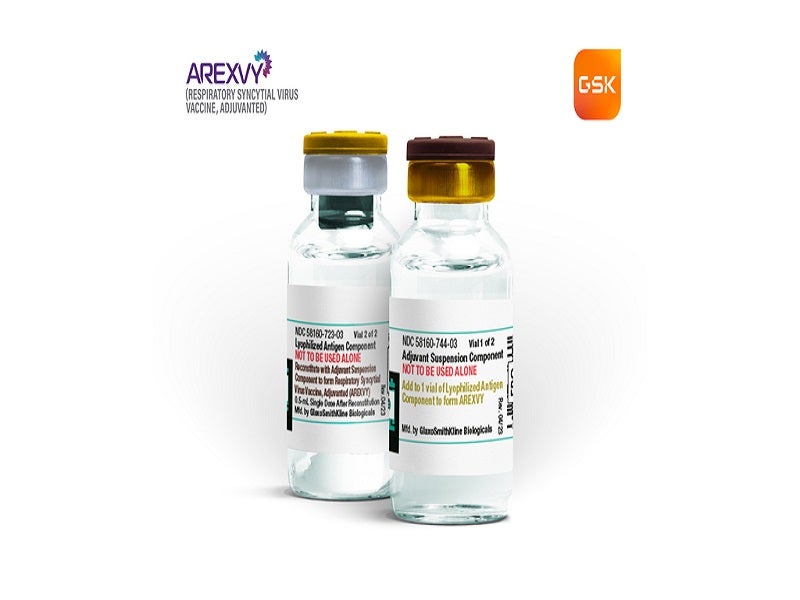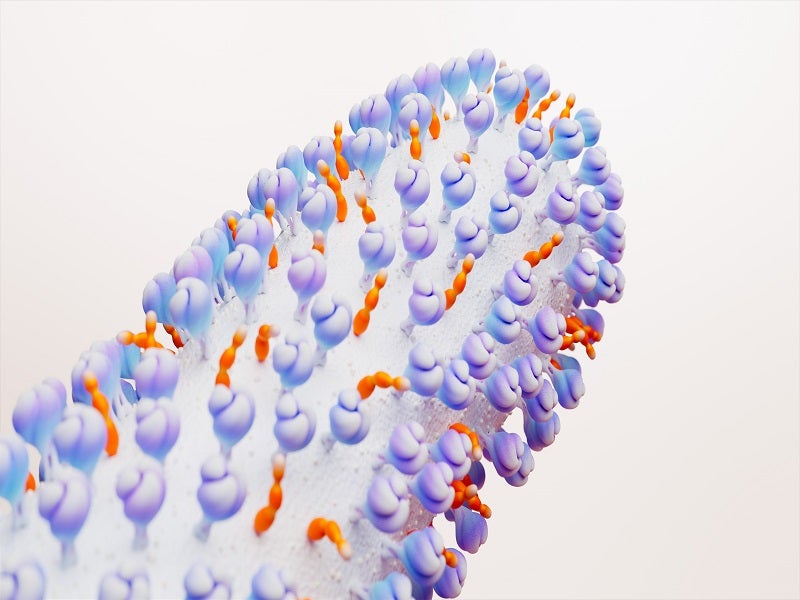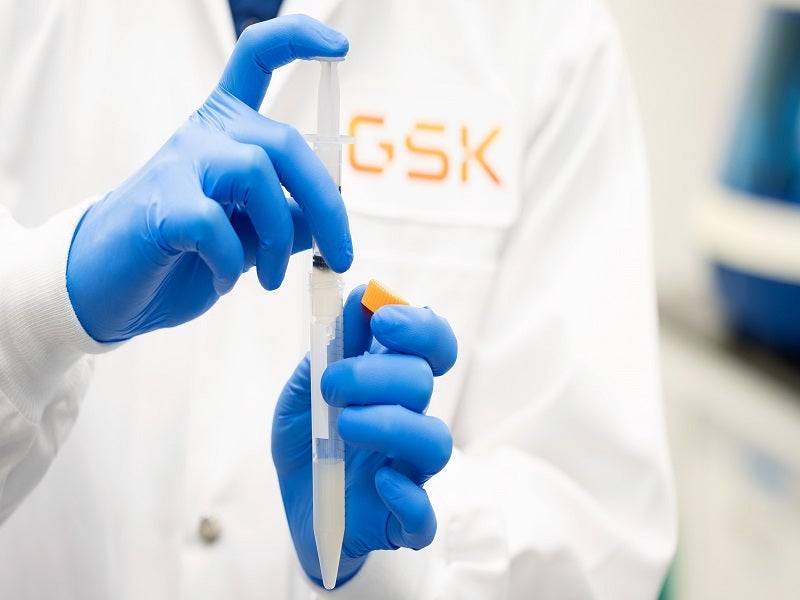Arexvy is a first-of-its-kind adjuvanted respiratory syncytial virus (RSV) vaccine indicated as a preventive measure against lower respiratory tract disease (LRTD) caused by RSV in individuals aged 60 and older.
Developed by GlaxoSmithKline (GSK), a pharmaceutical company based in the UK, Arexvy contains RSVPreF3, which is a specific protein genetically engineered from the virus, combined with AS01E- GSK’s proprietary adjuvant.
Arexvy is supplied as a single-dose vial containing a sterile white powder of the lyophilised antigen component accompanied by a vial of an opalescent, colourless to pale brownish sterile liquid of adjuvant suspension component for reconstitution. The powder and the suspension liquid are reconstituted into a suspension to be administered as a single dose of 0.5ml intramuscularly.
Regulatory approvals for Arexvy
Arexvy received a positive opinion from the European Medicines Agency’s (EMA) Committee for Medicinal Products for Human Use, recommending the approval of the vaccine for the condition in April 2023. The recommendation came after the acceptance of the marketing authorisation application for the drug by the EMA under accelerated assessment in October 2022.
The US Food and Drug Administration (FDA) accepted a biologics license application for Arexvy and granted priority review in November 2022. Arexvy received approval from the FDA in May 2023.
The Advisory Committee on Immunisation Practices will provide recommendations regarding the proper use of the vaccine in the US, in June 2023. Arexvy is also being reviewed in Japan and several other countries.
RSV-associated lower respiratory tract disease causes and symptoms
RSV is a common contagious virus affecting the lower airways, particularly the lungs. It is one of the common causes of lower respiratory tract infections, especially in older adults.
RSV spreads along with other winter respiratory viruses, particularly seasonal influenza. The disease is primarily indistinguishable from influenza based on clinical data alone.
RSV infection typically appears in adults about four to six days after exposure to the virus. It causes mild cold-like signs and symptoms, including congestion, runny nose, low-grade fever, sore throat, sneezing and headache.
Older adults with underlying medical conditions, such as diabetes and chronic heart and lung disease, are at greater risk due to weak immune systems than young adults.
In severe cases, the infection can eventually lead to LRTD, causing pneumonia or bronchiolitis. Signs and symptoms may include fever, severe cough, wheezing, rapid breathing, difficulty breathing and bluish skin colour due to lack of oxygen (cyanosis).
RSV can sometimes lead to serious conditions such as asthma, chronic obstructive pulmonary disease and congestive heart failure, leading to hospitalisation and death.
RSV is estimated to cause 177,000 hospitalisations and 14,000 deaths a year in adults aged 65 years and older in the US.
Arexvy’s mechanism of action
Arexvy is a recombinant subunit prefusion RSV F glycoprotein antigen (RSVPreF3) combined with AS01E adjuvant.
The vaccine provides adult immunisation by triggering an immune response against RSVpreF3, thus protecting against LRTD caused by RSV.
Clinical trials on Arexvy
The FDA approval of Arexvy was based on the positive outcomes from the global, randomised, placebo-controlled phase III clinical trial named Adult Respiratory Syncytial Virus-006, which is part of a comprehensive RSV evidence generation programme conducted by GSK.
The study enrolled approximately 25,000 patients from 17 countries to evaluate the safety and efficacy of the vaccine against RSV-associated LRTD in adults aged 60 years and older.
The clinical trial demonstrated a statistically significant and clinically meaningful overall efficacy of 82.6% against RSV-associated LRTD, meeting the primary endpoint.
Additionally, Arexvy showed an efficacy of 94.6% in older adults with at least one underlying medical condition, such as certain cardiorespiratory and endocrine-metabolic conditions, while an efficacy of 94.1% was achieved in patients with severe RSV-associated LRTD.
The vaccine was generally well tolerated with an acceptable safety profile. The most common side effects reported in patients during the clinical trial were injection site pain, fatigue, muscle pain, headache and joint stiffness or pain.





